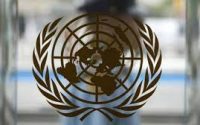Explained: How the plea to quash Section 377 made its way to the Supreme Court again
Source – moneycontrol.com

The plea to quash the infamous Section 377 of the Indian Penal Code has risen from the grave and made its way back to the Supreme Court yet again after ruthlessly being thrown out in 2013. What needs to be seen is whether the apex court will scrap the section or condone it in the aftermath of the hearing of the curative plea.
Meanwhile, let’s rejig our memories and see all the plea has been through until it made to the ultimate legal resort – the curative plea.
What is Section 377 of the Indian Penal Code (IPC)?
Section 377 of the IPC, titled as “unnatural offences”, criminalises an individual for engaging in “carnal intercourse which is against the order of nature”. The punishment could be a term ranging from 10 years to life imprisonment; or punitive fine.
It also adds a caveat in the form of an explanation which suggests that “penetration is sufficient to constitute carnal intercourse necessary to the offence described in the section”.
The offence is cognizable, not bailable, and not compoundable; which means that the police have the authority to arrest a suspect without a warrant; the arrested individual cannot pay the bail amount and be released from bail without a hearing before a magistrate; and no compromise is allowed between the accused and a victim in order to avoid a trial.
Simply put, sodomy and bestiality are a crime under Section 377 of the IPC. According to Section 377, penile-anal, penile-oral or penile-animal penetration constitutes ‘carnal intercourse’ against the order of nature. The bone of contention, however, is the clause “against the order of nature”.
While the section generically criminalises carnal intercourse, it hasn’t touched upon whether it is between two “consenting” homosexuals or even heterosexuals; and what exactly is against the “order of nature”, who decides the order of nature and whether the order of nature evolves with changing times or not. Hence, the plea to scrap the “draconian” section.
Who has filed the petition?
The first petition to scrap Section 377 was filed by Naz Foundation, an NGO which works for LGBTQ rights, in Delhi High Court in 2009. It contended that the section violated the fundamental rights of the LGBTQ community, and that homosexual acts between consenting adults should be legalised.
Since that time, more such organisations have become party to the case, including Humsafar Trust.
What fundamental rights the petitioners claim have been violated by Section 377?
Article 14—Equality before law; Article 15 – Prohibition of discriminating any citizen on ground of religion, race, caste, sex, place of birth; and Article 21—personal liberty – of the Indian Constitution.
When was the petition first filed in court?
Naz Foundation had first filed the petition in Delhi High Court in 2009 before a two-judge panel. In the July 2009 landmark verdict, Justice Shah and Justice S Muralidhar had struck down Section 377 of the IPC saying they were violative of Articles 21, 14 and 15 of the Indian Constitution. The high court had clarified that the section will be invoked only in cases of non-consensual sex and sex with a minor (below 18 years of age).
The judgment had read, “We hold that sexual orientation is a ground analogous to sex, and that discrimination on sexual orientation is not permitted under Article 15.”
The Bench further said, “This clarification will hold till, of course, Parliament chooses to amend the law to effectuate the recommendation of the Law Commission of India in its 172nd Report which, we believe, removes a great deal of confusion.”
Why was this verdict revoked by the Supreme Court?
The matter was appealed in the Supreme Court by Suresh Kumar Koushal, who runs Tarunaditya Astrological Centre in New Delhi’s Preet Vihar in 2013. His counsel contended that if the top court allows for the verdict given by the Delhi High Court on the matter, “then India’s social structure and the institution of marriage will be detrimentally affected and young persons will be tempted towards homosexual activities.”
At that time, the Supreme Court favoured the arguments put forth by the appellant and struck down the Delhi High Court’s celebrated verdict. The apex court observed, “Unless a clear constitutional violation is proved, this Court is not empowered to strike down a law merely by virtue of its falling into disuse or the perception of the society having changed as regards the legitimacy of its purpose and its need.”
The judgment added, “Abuse of power given by law does occur; but the validity of the law cannot be contested because of such an apprehension. Discretionary power is not necessarily a discriminatory power.”
The Supreme Court also said it had merely pronounced on the correctness of the view taken by the Delhi High Court and observed that Section 377 did not suffer from any constitutional infirmity. It said, however, that the Legislature is free to delete or amend the section as per suggestions from the Attorney General.
Why is the Supreme Court hearing the matter now?
In January 2018, a three-judge bench of the Supreme Court decided to revisit the 2013 judgment “because of the constitutional issues involved” and concurred that it was “appropriate to send this to a larger bench”.
The court also said, “A section of people or individuals who exercise their choice should never remain in a state of fear” and “choice can’t be allowed to cross boundaries of law but confines of law can’t trample or curtail the inherent right embedded in an individual under Article 21 – Right to life and liberty”.
What is the Centre’s stand on the issue?
While the Centre has not come out with a concrete stand on the issue of scrapping Section 377, several ministers of the Modi cabinet have mentioned their opinion in passing. For instance, in February 2017, Finance Minister Arun Jaitley had said, “Supreme Court should not have reversed the Delhi High Court order which decriminalised consensual sex between gay adults”. Former Union Health Minister Harsh Vardhan had also said in 2014 that, “Everybody has human rights, and it is the government’s job to protect them.”
Meanwhile, then BJP President Rajnath Singh, months ahead of coming into power, was quoted in December 2013 as saying, “We will state (at an all-party meeting if it is called) that we support Section 377 because we believe that homosexuality is an unnatural act and cannot be supported.”
Again, BJP MP Subramanian Swamy recently said, “Being gay is against Hindutva” and that it needs a cure, news agency ANI has reported.
Sooner than later, the BJP-led government at the Centre will have to clarify its stand on the issue as the curative pleas are now in the Supreme Court and are being heard July 10 onwards.



